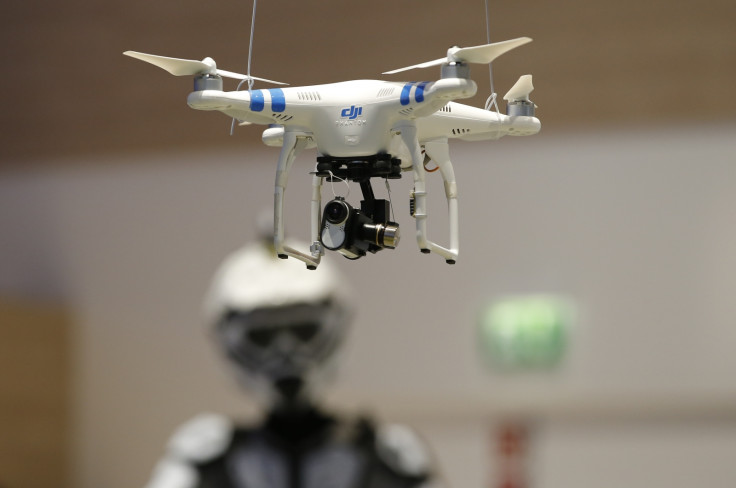Drones Evidence Committee: Technology to Regulate Civilian Unmanned Aerial Vehicles

The House of Lords has heard evidence from various witnesses on Monday regarding the regulation of remotely piloted aircraft systems (RPAS).
Ideas were suggested for a specified command and control system or geofencing to regulate civilian use of flying drones.
Ray Mann, head of the National Aeronautical Centre and managing director for West Wales Airport told the committee: "We should fly [the drones] in a segregated airspace. The constraints are down to technology, how can we make sure that the pilot has the same control from the ground as he would from a cockpit? A command and control system link is important."
Mann said that the UK is just the "right size" to accommodate a network to control unmanned aerial vehicles (UAV), which would not be possible in countries with a bigger land mass.
"Similar to mobile phones, where the mobile signal is picked up by different mobile towers, with unmanned aerial systems, the command and control must always be linked to the aircraft, so no matter what happens, the control can always be taken over from the ground," he said.
Geofencing
Captain Andy Brown, chairman for the RPAS Working Group in the British Airline Pilots Association (BALPA), told the committee that another solution to the problem of regulating civilian drones would be to use geofencing.
Brown said: "Many small quadcopters weighing below 7kg are being operated properly but a small proportion are being operated irresponsibly. Geofencing, a way that restricts which geographic locations these systems can work in is one way to do this.
"The latest UAVs being produced in China are having controls put in that ensure that if the UAV flies into controlled airspace, it will bump into the barrier and then land on the ground, so you can't fly drones in Tiananmen Square.
"With geofencing, you can put in whatever you like and it doesn't cost very much money. We believe a combination of awareness and regulation is needed to manage unmanned aerial systems (UAS)."
Large unmanned aircraft
Witnesses also told the committee that large unmanned aircraft would be more popular for commercial use than small aircraft, but it still wouldn't be for quite a while, as the technology to control and regulate these types of aircraft to make them safe doesn't yet exist.
"There aren't any RPAS in the region of 20kg, but we believe economics could be in favour of large cargo aircraft, led by the military, getting cargo aircraft into hostile areas. The thing about large cargo aircraft, they need no pressurisation and there are no human passengers to worry about," said Brown, referencing Captain Chesley Sullenberger's heroic actions in landing US Airways Flight 1549 safely on the Hudson River in 2009 after geese caused engine failure.
"You need a pilot. Humans are much better at dealing with complex errors. There should not be an autonomous system that can shut down an engine without a human being."
Gary Clayton, chairman and director of the UAVS Group agreed, telling the committee that technologists are not yet envisioning large unmanned aircraft without humans in control.
"A series of applications were thought up by the technologists in the past. Most of the UAS are doing things that we didn't think of beforehand. I think the commission identifies a lot of questions that need to be looked at but doesn't address them," said Clayton.
"We have conducted research in the UK in autonomy and levels of autonomy, but no one is envisioning autonomous flying aircraft, there might by automatic flying with a human in the loop, but not autonomous flying."
Legislation and more research funds needed
Dr Sue Wolfe, a project manager with aviation consultancy firm Callen Lenz, stressed to the House of Lords that regulations of amateur hobbyist flying drones must be established now, before serious incidents occur.
"In particular to AUS, there needs to be more research into smaller systems. There is a strong limit to the resources available to look into the problems at the moment," she told the committee.
"Small UAV operators gain exemptions from the Civil Aviation Authority (CAA) by a process that's laid down that allows them to operate in the UK. The industry is already quite vibrant within those restrictions. If we could drive those restrictions further the industry could open up.
"To focus on the new hobbyist is important and the longer we leave it to do something, the more risk there is of something serious happening."
© Copyright IBTimes 2025. All rights reserved.





















